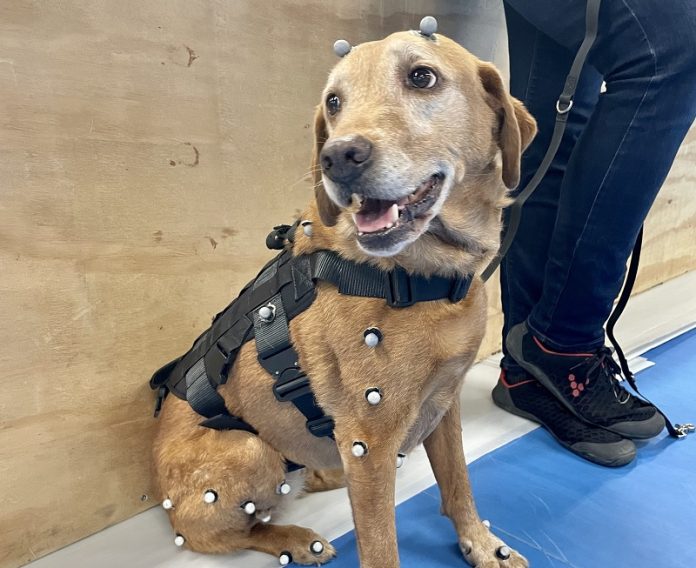How dog owners notice the way their animals walk and if it changes will be explored in a new study to help inform better canine care.
The Manchester Metropolitan University research, funded by the Evolution Education Trust, will investigate how well dog owners, vets and zookeepers can spot changes in how their animals walk.
Identifying these problems is a key step in diagnosing numerous musculoskeletal and neurologic conditions, with researchers hoping to advance the way different canine species are observed and treated, both in captivity and in the wild.
Dr Charlotte Brassey, Senior Lecturer in Zoology at Manchester Metropolitan University, said: “Many dog owners will attest to their ability to ‘read’ their pet’s facial expressions. But how well can we ‘read’ a dog’s walking pattern? As observers, we are extremely sensitive to human movement, and we can quickly detect the motion of fellow humans even in very messy video footage. We want to understand if the same is true when watching our four-legged friends.
“By working with dog owners, veterinarians and collaborating zoos across the UK, the findings of our project will both inform animal care and add to our collective understanding of canine domestication.”
Humans have provided basic veterinary care for their animals for more than 14,000 years, and the ability to detect and treat pain in domesticated species has been fundamental to this longstanding relationship.
The new study will include many species, including domestic dogs, foxes and wild species of wolves. It is thought that because dogs and humans have evolved together, humans will be more attuned to the walk – also known as gait – of domestic dogs than wild species.
Dr Brassey added: “We might see quite large differences between the movement of wild and domestic species.
“Watching wolves and dogs, we can definitely see that they move quite differently. It will then be really interesting to see if this manifests in us being able to judge domestic dog gait more reliably than that of wild dog species.”
Through the project, Manchester Met researchers will work with psychologists at the University of Liverpool to test the perceptiveness of dog owners, non-owners and trained professionals. Using video footage collected from state-of-the-art cameras, the team will create computer animations of canine walking, incorporating both realistic and artificially manipulated gaits.







